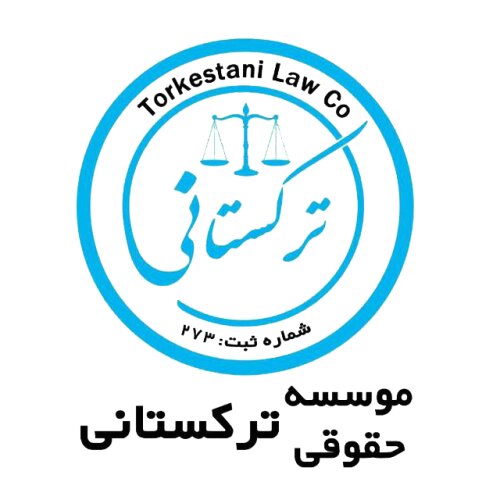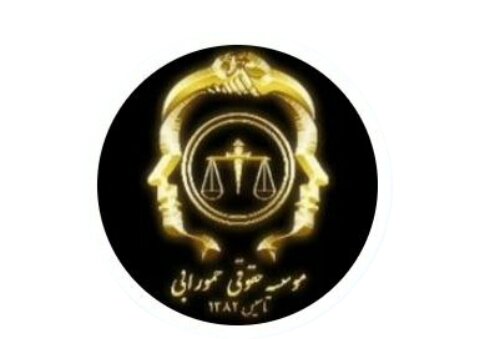Best Arrests & Searches Lawyers in Tehran
Share your needs with us, get contacted by law firms.
Free. Takes 2 min.
List of the best lawyers in Tehran, Iran
About Arrests & Searches Law in Tehran, Iran
In Tehran, Iran, the laws governing arrests and searches are significantly influenced by Islamic principles as well as the civil and penal code of the country. The Iranian legal system is based on Islamic law (Sharia), and these laws provide specific guidelines on how arrests and searches should be conducted. Law enforcement authorities have the power to arrest individuals suspected of breaking the law, but this must be executed with a proper warrant, except in certain urgent situations. Understanding the nuances of these laws can help individuals better navigate their rights and responsibilities under Iranian law.
Why You May Need a Lawyer
Legal expertise can be vital in numerous situations involving arrests and searches. If you or someone you know has been detained or is under investigation, a lawyer can provide expert advice on legal rights and available defenses. Lawyers can also assist in cases of unlawful search and seizure, ensuring that evidence against you is procured lawfully. Additionally, legal specialists can represent you in court, preventing heavy penalties and defending your rights against potential abuses by authorities.
Local Laws Overview
The key aspects of local laws in Tehran, Iran, relevant to arrests and searches, include:
- The requirement for law enforcement to obtain a judicially-sanctioned warrant for searches, except in special circumstances where immediate action is necessary.
- The rights of individuals to remain silent and to be informed of the charges against them at the time of arrest.
- Protections against arbitrary detention under both Iranian law and international treaties to which Iran is a signatory.
- Guidelines for the treatment of detainees, including the provision of legal counsel and the protection of detainees' basic human rights.
Frequently Asked Questions
What is required for the police to conduct a search in Tehran?
Generally, the police need a warrant issued by a judicial authority to conduct a search. There are exceptions for emergency situations when obtaining a warrant is impractical.
Can the police arrest me without a warrant?
Yes, if you are caught in the act of committing a crime or if there is strong evidence to suspect you are involved in a crime, the police can arrest you without a warrant.
What should I do if I am arrested?
Stay calm, do not resist arrest, and contact a lawyer as soon as possible. You have the right to know the charges against you and to remain silent until your lawyer is present.
How long can I be detained without being charged?
Under Iranian law, you must be formally charged within 24 hours of arrest. However, this can extend under exceptional conditions, subject to judicial review.
Can I refuse a search of my property?
If the police present a valid search warrant, you must comply. Without a warrant, you can refuse unless they are searching under a lawful exception.
What rights do I have during a search?
You have the right to see the warrant, witness the search, and ensure the search follows legal procedures. Any evidence obtained unlawfully may be inadmissible.
Is evidence obtained during an unlawful search admissible?
Evidence obtained unlawfully, such as without a warrant, may be challenged in court and potentially deemed inadmissible.
Do I have the right to an attorney during questioning?
Yes, you have the right to legal counsel during any questioning following an arrest. This is a fundamental right under Iranian law.
Can I contact my family if I am arrested?
Yes, you should be allowed to contact family members or a lawyer after an arrest, although this right can be delayed in some situations.
What legal recourses are available if I believe my rights were violated during an arrest?
You can file a complaint with the judiciary. A lawyer can assist you in taking legal action against wrongful arrest or malpractice by law enforcement officers.
Additional Resources
If you find yourself needing legal assistance or information regarding arrests and searches, consider reaching out to the following organizations:
- The Iranian Bar Association, which can refer you to qualified legal professionals.
- The Judiciary of the Islamic Republic of Iran, which can provide official guidance on legal proceedings.
- Local NGOs focused on human rights, which can offer support and advice on legal rights and recourse.
Next Steps
If you need legal assistance related to arrests and searches in Tehran, start by consulting a lawyer with expertise in criminal law. It is critical to act swiftly to protect your legal rights and ensure due process. Document all interactions with law enforcement and legal entities, and keep copies of any relevant legal documents. Seeking the counsel of a knowledgeable lawyer is your best course of action to navigate the complexities of the legal system effectively.
Lawzana helps you find the best lawyers and law firms in Tehran through a curated and pre-screened list of qualified legal professionals. Our platform offers rankings and detailed profiles of attorneys and law firms, allowing you to compare based on practice areas, including Arrests & Searches, experience, and client feedback.
Each profile includes a description of the firm's areas of practice, client reviews, team members and partners, year of establishment, spoken languages, office locations, contact information, social media presence, and any published articles or resources. Most firms on our platform speak English and are experienced in both local and international legal matters.
Get a quote from top-rated law firms in Tehran, Iran — quickly, securely, and without unnecessary hassle.
Disclaimer:
The information provided on this page is for general informational purposes only and does not constitute legal advice. While we strive to ensure the accuracy and relevance of the content, legal information may change over time, and interpretations of the law can vary. You should always consult with a qualified legal professional for advice specific to your situation.
We disclaim all liability for actions taken or not taken based on the content of this page. If you believe any information is incorrect or outdated, please contact us, and we will review and update it where appropriate.

















